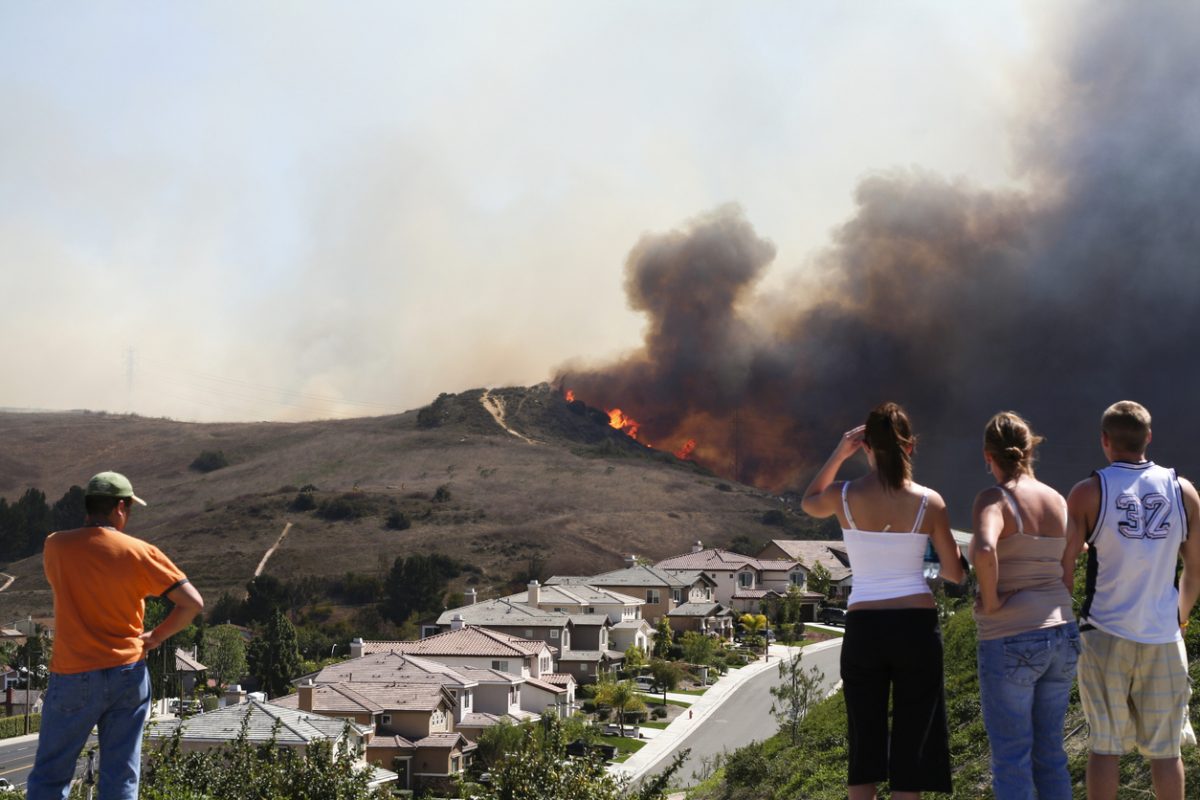
Stalking and COVID-19:
Consequences of a Pandemic
Stalking can be defined as recurrent and unwanted intrusive behavior toward another individual that causes distress.1 The stalker has an intense preoccupation with the victim.2 Stalking episodes may be short lived, but some are enduring and persistent. Perpetrators who persist with their campaign of harassment may have an underlying mental disorder.3 These disorders can include psychotic illness, manic state, substance dependence, personality disorder, and, rarely, an obsessional illness wherein their actions may be egodystonic.3
The Crime Survey for England and Wales4 reported that almost 1 in 5 females over the age of 16 years and nearly 1 in 10 males have experienced stalking. This behavior evokes significant psychological distress and impacts the social functioning of both the victim and perpetrator. Approximately 20% of victims may consult physicians regarding their mental health or somatic symptoms but do not volunteer their stalking history.5
COVID-19 and Stalking
Coronavirus 2019 (COVID-19)-related government policies, which include social distancing and lockdown, have escalated the frequency and associated risks of stalking. Perpetrators are now more likely to be aware of victim locations because of their restricted movements.6 Limitations on social and recreational activity allow for greater fixation on the victim. Health care facilities, public sector organizations, and advocacy groups may have restricted services, further compounding the situation.
The stalking advocacy service Veritas Justice reported a 26% increase in referrals since the lockdown period compared to their previous 3-month average.7 Cyberstalking in particular has increased.7 Seventy-five percent of clients confirmed this change with more reporting unsolicited contact via calls, e-mails, texts, social media, and gaming platforms.7 Other UK-based advocacy agencies including Paladin and Suzy Lamplugh Trust have reported similar findings, with a surge in cyberstalking during the first 4 weeks of lockdown.8 Paladin reported a 40% increase in victims contacting their service.8
Typology of Stalking
There is an association with stalking and intimate partner violence. Stalking fulfills part of the definition of intimate partner violence.9 Earlier identification and management of intimate partner violence may prevent the onset of stalking.10 The emergence of stalking is contextual with perpetrators having different motivations. There is consensus on typology and classification of stalking motivations.3
The "rejected" are the most common group of stalkers.3 This type of stalking is initiated following the end of an intimate relationship.3 The perpetrator does not accept or come to terms with the loss. Active violence is more frequent in these cases in comparison to other forms of stalking.3 Juvenile stalking is also characterized by a higher degree of threatening behavior and violence when compared to adult stalking.11 One study11 found that juvenile stalking was usually an extension of bullying, which was initiated in the school environment.
Psychological Impact
A study5 reported that individuals with mental illness may be at greater risk of being victimized by stalking. Stalking instills anger, fear, guilt, hypervigilance, and mistrust in victims.12,13 Individuals can become isolated with feelings of abandonment and loss of control. Victims are more likely to have depression, anxiety, and trauma-related illness.12,13
In 1 study,14 100 victims completed a 50-item questionnaire to describe their experiences. Ninety-four respondents reported significant lifestyle change. Nearly a quarter of victims had considered or attempted suicide, reporting this as their only escape from a "life sentence of stalking."12,14 Sleep disruption was also a common finding.14
Over 50% of participants displayed the range of emotional symptoms listed in the DSM-IV PTSD criteria, with 37% of subjects fulfilling the actual diagnosis. A quarter of this group reported an increase in alcohol use and smoking, and some had also misused prescription medications. Many experienced somatic symptoms and exacerbation of chronic illnesses such as asthma and psoriasis. Also, 73% of respondents implemented additional security measures, with 4 keeping makeshift weapons under their beds. Two received instructions on the use of firearms. Forty-four individuals had consulted a medical practitioner, usually their primary care physician.14
Assessment
An empathetic and nonjudgmental approach is required when victims of stalking present to health care services. Individuals may be embarrassed, and some experience shame. These individuals should be reassured that all discussions are confidential. The physician should complete a comprehensive psychiatric assessment, including a history of substance use, and should screen specifically for symptoms of depression, anxiety, and PTSD. A social history will identify support networks and any dependents. A robust risk assessment will identify risk to self and others.
Physicians should remain aware and vigilant for potential "false victims."12 False claims may be a consequence of conscious fabrication or underlying psychopathology, which may arise from delusional ideation in those with a psychotic illness. Stalkers may accuse victims out of retaliation or to maintain some contact. Genuine victims may misperceive situations because of cognitive dysfunctions including hypervigilance. Their social isolation may be a perpetuating factor, as this can affect reality testing. Individuals with factitious disorder may also present such accounts. Rarely, malingerers may feign reports of stalking for an external incentive.12
Management
Physicians should have knowledge of local specialist organizations where they can direct patients (Box 1). These organizations may have provision for tailored counseling and offer therapeutic support groups for victims. A safety plan is essential so that strategies are in place to protect the victim and family members who may also be at risk. The victim should be advised to avoid contacting or confronting the stalker.12,13 They should utilize their support networks and be encouraged to notify the police if they feel unsafe. Any evidence should be retained, with incidents carefully recorded. The advice provided by clinicians should remain clear and consistent. Collaboration is needed, as multiple agencies may be involved including the police and judiciary.
Victims should be supported to return to their previous level of interpersonal and occupational functioning.12 They should be counseled regarding good sleep hygiene. Psychological therapies may be helpful, particularly cognitive-behavioral therapy.12 Individuals at greater risk of developing a mental illness should be carefully monitored. Those who show signs of active mental illness should be treated with the recommended evidence-based intervention. Patients with substance misuse should receive motivational interviewing and also be referred to local drug and alcohol services.
Clinical management of psychiatric illness should generally follow the biopsychosocial model of care. A referral to secondary psychiatric services may be needed given the complexity of these cases. During the COVID-19 pandemic, clinicians should remain vigilant for stalking and offer compassionate support.
Box 1. Resources for Victims of Stalking
- UK National Stalking Helpline telephone: 0808 802 0300
- Suzy Lamplugh Trust. Live Life Safe: https://www.suzylamplugh.org/
- GOV.UK. Report a Stalker: https://www.gov.uk/report-stalker
- Paladin National Stalking Advocacy Service: https://paladinservice.co.uk/
- Protection Against Stalking: http://www.protectionagainststalking.org/
- Mental Health NHS Trust. National Stalking Clinic:
http://www.beh-mht.nhs.uk/services/national-stalking-clinic.htm - National Center for Victims of Crime:
https://victimsofcrime.org/stalking-resource-center/about-us/ - Stalking Prevention, Awareness, and Resource Center:
https://www.stalkingawareness.org/
Received: May 27, 2020.
Published online: August 6, 2020.
Potential conflicts of interest: None.
Funding/support: None.
REFERENCES
1. Wilson S, Dempsey C, Farnham F, et al. Stalking risks to celebrities and public figures. BJPsych Advances. 2018;24(3):152-160. CrossRef
2. Nadkarni R, Grubin D. Stalking: why do people do it? BMJ. 2000;320(7248):1486-1487. PubMed CrossRef
3. Mullen PE, Pathé M, Purcell R. The management of stalkers. Adv Psychiatr Treat. 2001;7(5):335-342. CrossRef
4. Government gives police new powers to protect victims of stalking. GOV UK website. https://www.gov.uk/government/news/government-gives-police-new-powers-to-protect-victims-of-stalking. Accessed July 24, 2020.
5. Dressing H, Scheuble B, Gass P. Stalking—a significant problem for patients and psychiatrists. Br J Psychiatry. 2006;189(6):566. PubMed CrossRef
6. Stalking Victims Say They Feel Like ‘ Sitting Ducks’ and Must Not be Forgotten in the Response to COVID-19. Suzy Lamplugh Trust website. https://www.suzylamplugh.org/news/stalking-victims-say-they-feel-like-sitting-ducks-and-must-not-be-forgotten-in-the-response-to-covid-19. Accessed July 24, 2020.
7. Cyberstalking increases across Sussex in COVID-19 crisis. Sussex Police & Crime Commissioner website. https://www.sussex-pcc.gov.uk/about/news/cyberstalking-increases-across-sussex-in-covid-19-crisis/. Accessed July 24, 2020.
8. Grierson J. The Guardian website. Surge in stalking victims seeking help during UK lockdown. https://www.theguardian.com/uk-news/2020/may/08/coronavirus-surge-stalking-victims-seeking-help-during-uk-lockdown. Accessed July 24, 2020.
9. Mazza M, Marano G, Lai C, et al. Danger in danger: interpersonal violence during COVID-19 quarantine. Psychiatry Res. 2020;289:113046. PubMed CrossRef
10.Kamphuis JH, Emmelkamp PMG. Stalking—a contemporary challenge for forensic and clinical psychiatry. Br J Psychiatry. 2000;176(3):206-209. PubMed CrossRef
11.Purcell R, Moller B, Flower T, et al. Stalking among juveniles. Br J Psychiatry. 2009;194(5):451-455. PubMed CrossRef
12.Pathé M, Mullen PE, Purcell R. Management of victims of stalking. Adv Psychiatr Treat. 2001;7(6):399-406. CrossRef
13.Mullen PE, Mackenzie R, Ogloff JRP, et al. Assessing and managing the risks in the stalking situation. J Am Acad Psychiatry Law. 2006;34(4):439-450. PubMed
14.Pathé M, Mullen PE. The impact of stalkers on their victims. Br J Psychiatry. 1997;170(1):12-17. PubMed CrossRef
aWaltham Forest Older Mental Health Team, North East London Foundation Trust, Red Oak Lodge, London, England
*Corresponding author: Ahmed Saeed Yahya, MRCPsych, North East London NHS Foundation Trust, Waltham Forest Older Adults Mental Health Team, Red Oak Lodge, London, E11 4HU, UK ([email protected]).
Prim Care Companion CNS Disord 2020;22(4):20com02691
To cite: Yahya AS, Khawaja S. Stalking and COVID-19: consequences of a pandemic. Prim Care Companion CNS Disord. 2020;22(4):20com02691.
To share: https://doi.org/10.4088/PCC.20com02691
© Copyright 2020 Physicians Postgraduate Press, Inc




